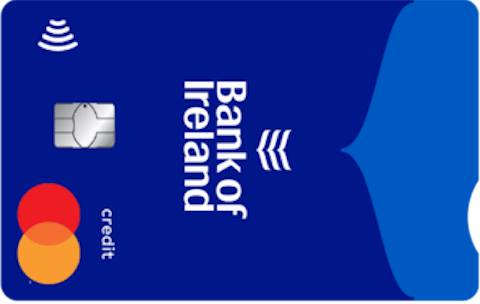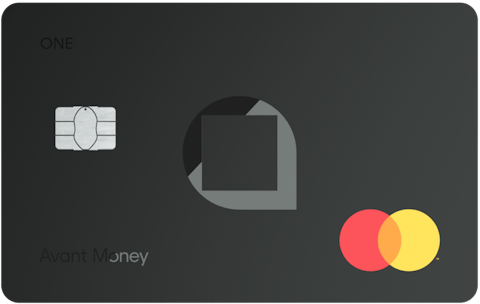Compare Ireland’s best credit cards
Discover the best credit card deals and get Ireland’s top balance transfer, rewards and 0% purchase card offers.
Ideal for everyday spending

Longest 0% money transfer

Guide
Your complete guide to credit cards in Ireland
Credit cards are a convenient and secure way to pay. Here’s what you need to know about credit in Ireland and how to pick the right card for your needs.
- Part 1 How credit cards work
- Part 2 Types of credit cards
- Part 3 Credit card costs
- Part 4 Choosing the right credit card
- Part 5 Applying for a credit card
Our expert says
Credit cards are a safe and convenient way to buy now and pay later.
There are several types of credit cards, with a range of features to suit every financial need.
Purchase credit cards often come with a 0% introductory discount which means you can enjoy interest-free spending for up to 12 months. Reward cards give you cashback when you shop and sometimes the chance to earn travel perks or discounts.
If you already have a credit card, balance transfer credit cards allow you to move your existing debt to cut interest costs and clear your balance faster.
Our advice is to take the time to understand how credit cards work and what type of card would suit you best. Compare interest rates to find the best credit card deal and check for any extra fees and charges.
Ensure you meet the lending criteria before applying, and read the terms and conditions, so you understand the costs.
The best credit cards have a low APR (Annual Percentage Rate) and a long introductory offer period, so you can enjoy zero interest purchases and balance transfers for longer.
All credit card providers listed are regulated by the Central Bank of Ireland, ensuring compliance with financial regulations.
Eoin Clarke
Latest Update
Credit cards roundup
New: Revolut offers RevPoints travel discounts on credit cards
13/05/2025: Revolut has added RevPoints rewards to their credit card offering, meaning customers can now earn airline miles and other travel perks every time they spend on their credit card.
The amount of points earned depends on the Revolut plan, but all credit card holders will receive an earn rate of up to 2x per €1 spent.
Debit card users in Ireland have been able to earn RevPoints on the majority of their transactions since the loyalty program’s introduction last June.
Avant Money officially becomes fully licenced bank
01/04/2025: Avant Money has transitioned into a fully licensed Irish bank, and is operating as a branch of Bankinter Group, Spain’s fifth-largest bank.
The lender is now set to deliver a wider range of financial products to include current accounts alongside its existing mortgage, loans, and credit card services.
Bankinter will continue to offer personal finance products under the Avant Money brand for now, before eventually transitioning fully to the Bankinter brand.
There will be no changes to the terms and conditions for credit card and loan customers.
Household credit card spending jumps in January
01/03/2025: Bank of Ireland debit and credit card spending jumped 6.1% in January, outpacing inflation.
A notable feature of January’s spending was a surge in summer holiday planning with travel agencies seeing a 50% increase in sales from December, and airline spending soaring by 90%. Although year-on-year growth was modest, hotel and resort spending increased by nearly 5%.
Revolut introduces Buy Now Pay Later feature for credit card customers
20/01/2025: Revolut credit card customers now have the option of buying goods on their credit card in instalments.
Similar to ‘Buy Now, Pay Later’ products like Klarna, the new feature, called instalments, will allow customers to pay in three, six, nine or 12-monthly intervals and has an interest rate of 9.5%.
This compares with Revolut’s standard credit-card annual percentage rate of 17.99%, which it said was one of the lower ones in the market.
Our credit wise tips
A credit card can be a great spending partner when used wisely. Here’s our quick tips for managing your credit card to keep borrowing costs under control.
Pay your balance in full every month
When possible, pay your entire balance off in full every month rather than just the minimum monthly payment. This way you’ll avoid paying interest on the borrowed money and pay off your debt quicker. If you can’t clear the outstanding balance, pay as much as you can afford when the balance is due.
Use for purchases not cash withdrawals
Whilst credit cards are a safe and convenient way to shop online or purchase in store, using your credit card for cash withdrawals can be costly. You’ll have to pay a cash advance fee and could get charged a higher interest rate.
Repay on time and don’t miss payments
If you miss payments or pay late, you could incur penalties and extra fees on top of interest. If it happens regularly, it may count against your credit rating and make future borrowing more expensive. Set up a direct debit and pay at least the minimum payment each month.
Consider a balance transfer
If you have an existing card debt, consider a credit card with an introductory balance transfer deal. Moving your current credit card balance to a 0% credit card could cut interest fees and clear the debt faster. Make sure you repay within the discount period and don’t use your card for purchases.
Check on transaction fees abroad
It’s tempting to pay for everything by card on holiday. Paying with a credit card is easy, provides protection and saves juggling new currencies. However, foreign transactions and ATM fees abroad can quickly add up, leaving you with a hefty price to pay on your return.
Use a credit card comparison
It’s often easier to apply for financial products with your existing bank, but they don’t always offer the cheapest or most suitable deal for your needs. Learn how to pick the right card in our complete guide to credit cards and use our credit card comparison to search for the best offers.
What you need to know
Common credit card terms you may come across and need to understand.
What is the Typical APR?
APR is the annual percentage rate and indicates the total cost of credit, including stamp duty. Typical APR is the rate most borrowers are offered based on the average APR charged by issuers.
What is the minimum repayment?
It’s the minimum amount you must pay monthly towards your credit card balance. If you don’t cover it, you’ll be charged late payment fees, pay extra interest and could risk harming your credit score.
What is Government Stamp Duty?
Your card provider is responsible for collecting stamp duty on behalf of the Revenue. Your credit card account will be charged annually in April with stamp duty. It’s currently €30 per year.
What is a credit limit?
It’s the amount your credit card provider will lend you. Your credit limit is the maximum amount you can spend on credit and is based on your income, outgoings and credit history.









